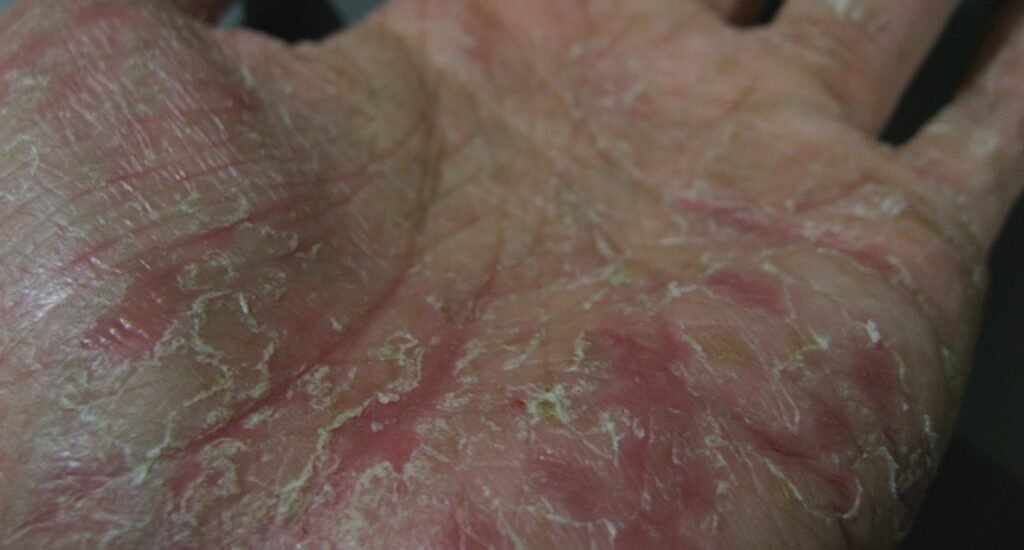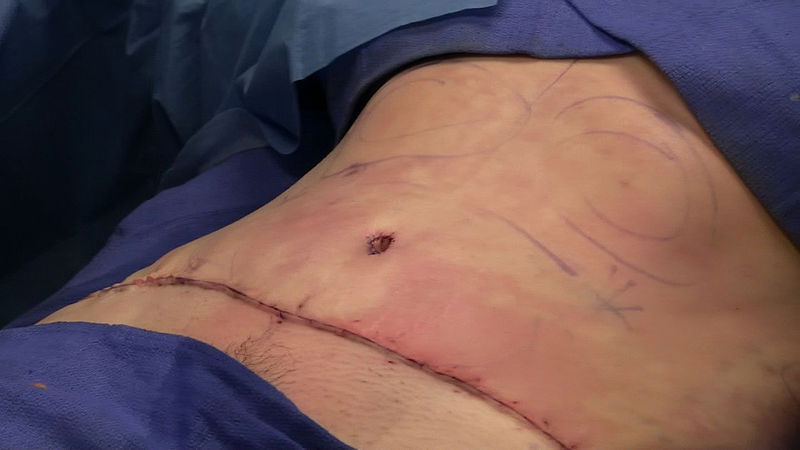If you’re struggling with how to get rid of scaly skin from eczema, this article offers a detailed, step-by-step guide designed to equip you with expert-backed advice for managing this condition and improving your skin health.

Table of Contents
Diagnosing Eczema
The first and foremost step in your journey to get rid of scaly skin from eczema is obtaining an accurate diagnosis. If you’re experiencing symptoms like itching, redness, and scaly patches on your skin, schedule an appointment with a dermatologist or healthcare provider.
According to the National Institute of Arthritis and Musculoskeletal and Skin Diseases, the diagnostic process typically involves the following steps:
Medical History: The doctor will ask about your symptoms, their duration, and if there’s a family history of eczema or other skin conditions.
Physical Examination: Your skin will be examined for characteristic signs of eczema like redness, scaly patches, and inflammation.
Skin Tests: Sometimes, skin tests or biopsies might be recommended to rule out other skin conditions.
How to Get Rid of Scaly Skin from Eczema
Wondering how to get rid of scaly skin from eczema, here are the treatment options available:
Over-the-Counter Treatments
For mild to moderate symptoms, Over-the-Counter (OTC) treatments can offer relief. The Cleveland Clinic recommends hydrocortisone creams or ointments as a starting point. A good example of such products is the Cortizone-10 Maximum Strength Ultra Soothing Anti-Itch Cream listed on Amazon.
Here’s how to use these treatments effectively:
Clean the Area: Use a mild, fragrance-free soap to clean the affected skin. Pat it dry with a soft towel.
Apply Cream: Apply a thin layer of hydrocortisone cream to the affected areas.
Frequency: Usually, these creams can be applied once or twice a day, but always follow the instructions on the packaging or consult a healthcare provider.
Prescription Treatments
If OTC treatments fail to bring relief, consult your healthcare provider for prescription medications. According to WebMD, commonly prescribed medications include:
Topical Corticosteroids: Stronger than OTC creams, these are applied directly to the skin to reduce inflammation and itching.
Antihistamines: These can control itching and are usually recommended for night-time use as they can cause drowsiness.
It’s crucial to follow your healthcare provider’s instructions, as overuse or misuse of these medications can lead to side effects.
Check out these other related articles…
Lines on Skin from Eczema: Comprehensive 411 Guide
Red Skin After Eczema: Your Complete Treatment Guide
Can Skin Recover From Eczema: The Ultimate Guide to Healing
Skin Peeling After Eczema Flare Up: Healing or Concern?
Does Skin Discoloration from Eczema Go Away? Detailed Answer
Lifestyle Changes
Managing eczema extends beyond medication to encompass lifestyle changes. The American Academy of Dermatology Association suggests:
Daily Skincare: Adopt a daily routine that includes cleaning the skin with mild soaps and moisturizing immediately after.
Identify Triggers: Keep a diary to note any patterns in what might be triggering your eczema-like foods, fabrics, or stress—and take steps to avoid them.
Mental Health: Stress can exacerbate eczema. Techniques such as deep breathing, yoga, or mindfulness can help manage stress.
Remember, each individual’s condition is unique, and you should consult a healthcare provider for a personalized treatment plan.


